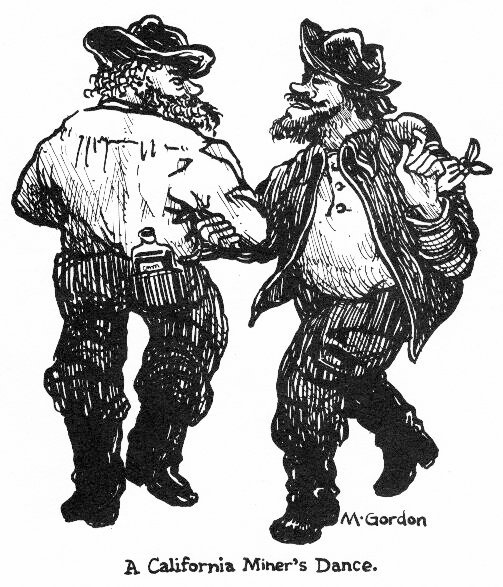What's more important; stage credits or training?
missmaree
Swing Joined: 2/10/13
#1What's more important; stage credits or training?
Posted: 2/10/13 at 11:49pm
Hiya everyone, so here is my dilemma, i'm returning to the Musical Theatre performance world after a long leave of absence (due to illness) I was after some advice as to what you think would be the better path for me to travel down, should i go and do some training or concentrate on accumulating credits (whether they be from a cruise ship, regional, community theater, cabaret, unpaid ...)
What do you guys think is more important on a resume, credits or training?
Thanks everyone in advance, i'm having so much trouble trying to decide what i should focus on.
Gothampc
Broadway Legend Joined: 5/20/03
#2What's more important; stage credits or training?
Posted: 2/11/13 at 12:27am
It depends what your ultimate goal is. If you are looking to make it on Broadway, I would stay away from cruise ships and focus on regional or cabaret or maybe try to get booked on a national tour.
Cruise ships are if you just want to have fun and not really care if you want to make it to another level.
Of course training is very important, you need a solid technique. But unless you are training with someone very well known, then it's not that much of a resume enhancer.
willep
Broadway Legend Joined: 9/20/08
#2What's more important; stage credits or training?
Posted: 2/11/13 at 2:59amUnless you just happen to be that lucky person on the right ship at the right time, wasn't Norm Lewis "discovered" on a cruise ship?
#3What's more important; stage credits or training?
Posted: 2/11/13 at 8:05am
It matters more WHERE you get either the training or the credits -- being cast in community theater will do nothing for getting you "seen" by anyone. You want to start working towards professional credits, and working towards your equity card.
missmaree
Swing Joined: 2/10/13
#4What's more important; stage credits or training?
Posted: 2/11/13 at 8:19am
Thanks guys for taking the time to reply, i really appreciate it.
Is the Lee Strasberg Institute of Film and Theatre in New York considered a good place to train? I've also looked at Circle in the Square, Cap 21 and New York Film Academy. Which ones should i consider or forget entirely?
Thanks again for your time ![]()
WOSQ
Broadway Legend Joined: 7/18/03
#5What's more important; stage credits or training?
Posted: 2/11/13 at 10:28am
Performing IS training. You will learn a whole lot in a season or two of stock. Probably more than you will in the sheltered environment of a classroom or lab.
Not only will you learn by doing, but you will be watching others do the same.
This is not to say not to take class when you can, but there's performing and then there is studying performing.
#6What's more important; stage credits or training?
Posted: 2/11/13 at 10:35am^This. All of this.
#7What's more important; stage credits or training?
Posted: 2/11/13 at 10:37am
I don't believe any of those schools carry much weight. You're going to give yourself a great advantage if you can go to a school that provides a showcase at the end of the program in front of NY and LA casting directors and agents. (These are the pricey and difficult to get-into schools like Yale, Juilliard, North Carolina [I'm actually not sure if NC does the showcase any more], etc.).
But even that is no guarantee of anything; there are scads of Yale graduates who got an agent who dropped them after a year or two of not booking any jobs.
Long story short - there's really nothing you can do to guarantee your chances of a career as a performer (unless there's a really good witch in the family).
lightguy06222
Broadway Legend Joined: 12/3/06
#8What's more important; stage credits or training?
Posted: 2/11/13 at 11:02am
lets be honest here... whats MOST important?
talent.
#10What's more important; stage credits or training?
Posted: 2/11/13 at 11:12amWe rarely look at where an actor has trained when we are auditioning, we look at credits (for Variety in their work) and see what they can do in front of us in the audition room.
missmaree
Swing Joined: 2/10/13
#11What's more important; stage credits or training?
Posted: 2/11/13 at 9:04pm
Thanks ever so much for all your replies, they have been an enormous help. I guess i'll do a short summer intensive and jump straight into auditioning.
Thanks again everyone :)
#12What's more important; stage credits or training?
Posted: 2/11/13 at 9:27pmSeldom either or. The total package. But age plays a role. A 25 year-old without major credits is a discovery; a 44 year-old with talent who hasn't landed a role in a major venue invites questions. Youth has its privileges.
#13What's more important; stage credits or training?
Posted: 2/12/13 at 10:26am
I studied at Stella Adler several summers ago. Took a six-week Chekhov intensive that turned me into an entirely different (and much better) actor. I primarily do musicals, but the techniques were completely applicable to any discipline.
The answer, IMHO, is "all of the above". I'd shy away from community theater and cruise ships if I were in your position. Get into the best rooms with the best people you can. It will give you on-the-job training, credit, and a network of people who are at the top of their game (and thus push you to be better in the process).
And if you sing, get out to open mike nights. Not necessarily the pay-to-play type where you have to sell tickets, but the bigger ones where you might have to attend a couple times before you get to perform. Take your best, best, best audition song (comic uptempos are always much appreciated in these places, but if your best song is a ballad, by all means, sing it). Take music in the right key, clearly marked for the pianist, as if it were a real audition. I recommend Monday night Cast Party at Birdland, but the Tuesday night show at 54 Below also seems to be the new hotness. Lots of industry people stopping in.
If you're in Equity, check the website for casting calls/EPAs. If not, playbill.com's casting call section is pretty great (and free!) Get to some auditions and shake the rust off. :) Plenty of people book work from these, and many casting directors are now inviting actors to self-submit, which takes the whole waiting-in-line-at-6-a.m. thing out of the equation entirely. You might even get the sides--but in the meantime, get your book back together and have a couple great contrasting monologues in your back pocket.
Pay attention to up-and-coming writers. If you know some, reconnect. If there are young writers whose work you like, pay attention to them on social media, go to a few shows, introduce yourself. Look at their existing work on YouTube (Ryan Scott Oliver, Brian Lowdermilk and Kait Kerrigan, Adam Gwon, and many others do a great job putting their new material out for public consumption, and many of them sell sheet music online). Learn a few new songs. If you build a relationship and they like what they hear, eventually they may ask you to come sing for them. You won't make any money, but there are plenty of good industry connections that come out of being seen at events like that.
Finally, if you have a great idea for a show, by all means, book yourself a one-nighter at Don't Tell Mama.
And have you tried the Actors Fund? You have to attend one of their orientations before you can access their workshops (every Monday except holidays, 12-2:30...they are very very strict about the times--if you show up at 12:01, you can't get in). Many of their free programs focus on developing reliable income, but I think they have some workshops specifically for onstage career development as well.
If you are motivated, committed, and talented, someone will hire you for something.
Good luck!
#14What's more important; stage credits or training?
Posted: 2/12/13 at 2:23pm
Listen to the two posters above me. Training should be considered an adjunct to performing, not an alternative. Neither will get you a job unless you are the best person to audition.
And people can learn bad habits from performing as easily as good, particularly if they are playing a lot of different roles without time to really delve into any one.
#15What's more important; stage credits or training?
Posted: 2/12/13 at 2:48pmTotally agree. You have to have a process before you can really dig deep into a performance. Without that layer your performance will be lacking no matter what.








